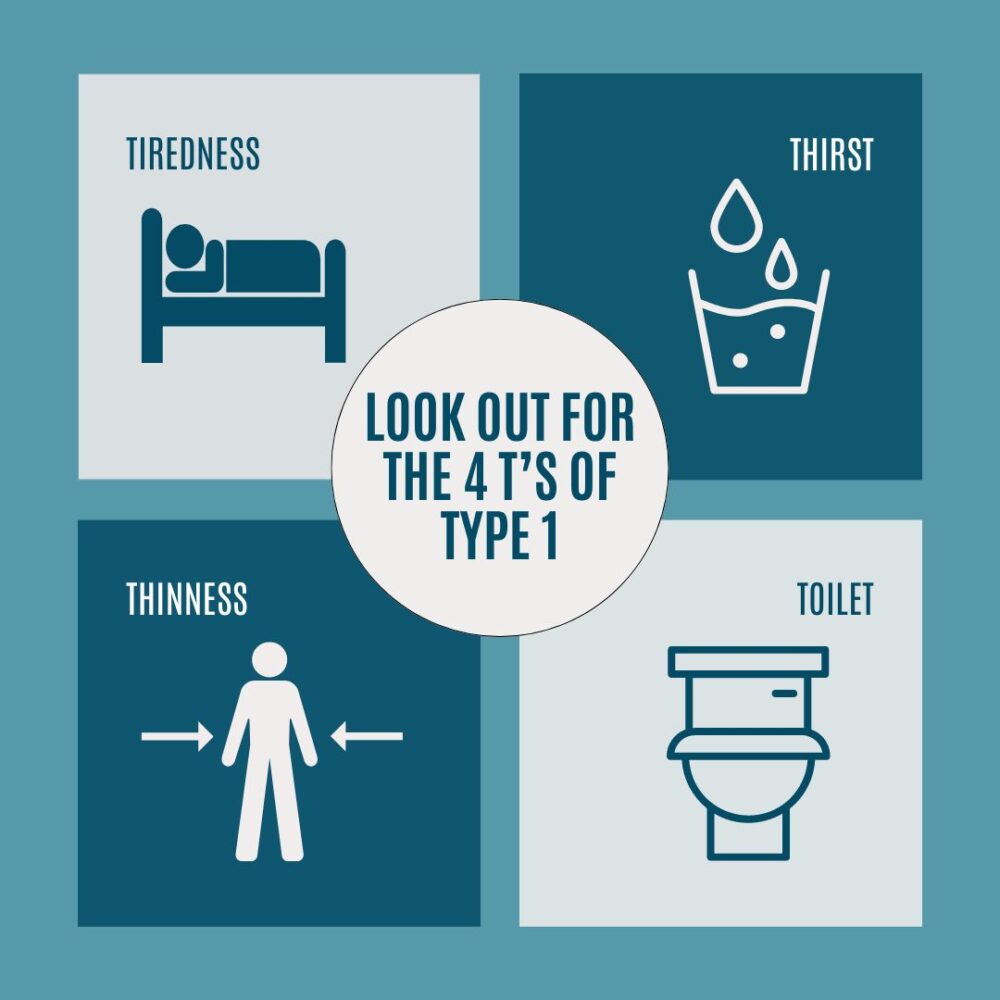Carbohydrates 101: Empower yourself with knowledge and facts about carbs, their impact on blood sugar regulation, and living with type 1 diabetes.

Carbohydrates play a crucial role in our daily diet, and understanding them is especially vital for individuals living with type 1 diabetes.
Initially, following a type 1 diagnosis, carbs may become a scary part of our diet and you may look to avoid them as much as possible. However, I hope that through this article I can convince you that carbs are an essential part of a diabetic’s diet and shouldn’t be avoided. In fact, I want to show you that carbohydrates can really help you to better manage blood glucose levels and achieve a longer time in range.
In this guide, I cover everything you need to know about carbohydrates, including some interesting facts, how they affect blood sugar, and strategies to manage them effectively



What are Carbohydrates?
Carbohydrates are one of the three main macronutrients (Protein, Carbohydrates and fat) that our bodies need for energy. They are the body’s primary source of fuel and play a crucial role in various bodily functions.
Carbohydrates can be found in a wide range of foods, including:
- Grains (rice, pasta, and bread)
- Fruits,
- Vegetables
- Legumes (beans and lentils)
- Dairy products (milk and yoghurt)
- Sugary products like cereals, biscuits and cakes.
The 2 Types of Carbohydrates – Simple & Complex
There are two main types of carbohydrates, simple and complex.
Simple carbs include sugars such as glucose and fructose that are easily broken down by the body for quick energy. These can be found in foods like sweets, fizzy drinks, fruit juice, honey, and are even naturally present in fruits.
On the other hand, complex carbohydrates consist of longer chains of sugar molecules linked together. These take more time to break down during digestion due to their complex structure. Foods rich in complex carbs include whole grains (like brown rice or whole wheat bread), starchy vegetables (such as potatoes or corn), and legumes (like chickpeas or kidney beans).
Why do we need Carbohydrates?
When we eat carbs-rich foods, our digestive system breaks them down into glucose molecules that get absorbed into our bloodstream. This glucose is then transported to cells throughout our body to serve as an immediate energy source or stored for later use.
Besides being a vital energy source for our bodies, carbohydrates also have other essential roles. They support brain function as the brain primarily relies on glucose for fueling its activities. Additionally, they contribute to muscle growth and repair after exercise through replenishing glycogen stores within muscles.
It’s important to note that not all carbohydrate sources are equal when it comes to nutritional value; some offer more nutrients than others. For instance, whole grains contain fibre along with essential vitamins and minerals, while processed carbs like sugary cereals or white bread lack these nutrients.
5 Interesting Facts about Carbohydrates
Here are five interesting and lesser-known facts about carbohydrates:
1. Fibre is also a carbohydrate
- While carbohydrates are often associated with sugars and starches, Fibre is also a carbohydrate which is digested differently by our bodies.
- You can find fibre in wholegrain products like bread, rice, pasta, legumes, beans fruits and vegetables
- Fibre is essential for digestive health but can also slow down the absorption of glucose into our bloodstream
2. Brain’s Preferred Energy Source
- The brain relies primarily on carbohydrates for energy. Glucose, a sugar derived from carbs, is the brain’s main fuel source.
- When glucose levels drop, it can affect cognitive functions, leading to fatigue and difficulty concentrating. Which are quite commonly experienced after long hypo episodes.
3. Carbohydrates Can Be Found in Surprising Foods
- Carbohydrates aren’t limited to grains, fruits, and vegetables. They can be found in unexpected sources like milk and yoghurt, which contain a natural sugar called lactose.
- A lot of condiments, sauces and processed foods also contain carbs due to the many added sugars. So make sure to always read your labels!
4. Not All Carbohydrates Are Created Equal
- Different carbohydrates have different effects on blood sugar levels.
- Foods with a high glycemic index (GI) cause rapid spikes in blood sugar like white pasta, rice, bread etc., while those with a low GI result in a slower, more gradual increase, like wholegrain versions of the listed products.
- Choosing foods with a lower GI can help manage blood sugar levels more effectively. Read more about the benefits of a whole food diet and managing diabetes here:

The Benefits of a Whole Food Diet and Diabetes
Explore the potential benefits associated with eating more whole foods, and learn tips on how you can incorporate more whole foods into your diet.
5. Carbohydrates Play a Role in Hydration
- Carbohydrates can help with hydration because they hold onto water molecules. This is why sports drinks often contain carbohydrates – they provide both energy and help maintain fluid balance during exercise.
- However, excessive consumption of sugary drinks can lead to dehydration (and high blood sugars) due to their high sugar content.
The Impact of Carbohydrates on Blood Sugar Levels
Carbohydrates are the fuel that our bodies use to function. When we eat foods containing carbohydrates, like bread, rice, fruits, and sweets, our digestive system breaks them down into a form of sugar called glucose. This glucose is then released into our bloodstream, causing our blood sugar levels to rise.
Why Is This Important for Type 1 Diabetes?
For a person living with type 1 diabetes, their bodies don’t produce enough insulin, a hormone that helps regulate blood sugar. Without enough insulin, the sugar in the bloodstream can’t enter the body’s cells to be stored or provide energy. This results in very high blood glucose levels, which are harmful in the short and long term.


Why Monitor Blood Sugar Levels?
- Preventing High Blood Sugar: Monitoring your blood sugar levels helps you catch and address high blood sugar (hyperglycemia) early. When blood sugar is too high, it can lead to symptoms like increased thirst, frequent urination, fatigue, and even more severe complications if left untreated.
- Preventing Low Blood Sugar: On the flip side, insulin, exercise or multiple other factors can sometimes lead to low blood sugar (hypoglycemia). Low blood sugar can cause symptoms like shakiness, sweating, confusion, and in severe cases, loss of consciousness. Regular monitoring helps catch and treat low blood sugar promptly.
- Adjusting Insulin: By tracking your carbohydrate intake and blood sugar levels, you can make informed decisions about your insulin doses. If you know how many carbs you’re eating, you can match your insulin dose using a carb to insulin ratio which aims to help keep your blood sugar within range.
- Optimal Diabetes Management: Monitoring blood sugar levels is a fundamental part of managing type 1 diabetes effectively. Through monitoring you can make adjustments to your diet, insulin, and daily activities to maintain stable blood sugar levels and reduce the risk of complications.
To summarise Carbohydrates 101
Carbohydrates are a vital part of our diet, but their management is especially critical for individuals living with type 1 diabetes. It’s important to understand that not all carbs are equal and how our bodies respond to them is very individual.
However, by mastering carb counting techniques and understanding your individual response to carbohydrates on blood sugar levels, you can take control of your health and enjoy a balanced, fulfilling diet.
Remember, practice and patience are key, and consulting with your healthcare team can provide personalized guidance on managing carbs effectively in your daily life.
Disclaimer: This guide is for informational purposes only and does not replace medical advice. Always consult with your healthcare provider or a registered dietitian for personalized recommendations.
If you enjoyed this post then it would mean a lot if you could leave a comment below! This is the best way you can help support me and my blog!
Don’t forget you can also FOLLOW ME on Instagram, Facebook and Pinterest.
References & Resources about Carbohydrates
- Diabetes UK – A leading charity organization in the UK dedicated to diabetes research and support. They have a wealth of information on managing diabetes, including further information about carbohydrates
- NHS (National Health Service) – The NHS website offers comprehensive information on diabetes management, including dietary advice and resources for type 1 diabetes patients.
- British Dietetic Association (BDA) – BDA is a professional association for dietitians in the UK and offers further information about carbohydrates.
- Diabetes.co.uk – This website offers information, forums, and resources for people living with diabetes in the UK, including an interesting read on carbohydrates and diabetes.
- Nutrition and Diet Resources from the British Nutrition Foundation (BNF) – BNF provides evidence-based resources and articles related to nutrition and dietary management, including information on carbohydrates.









Leave a Reply